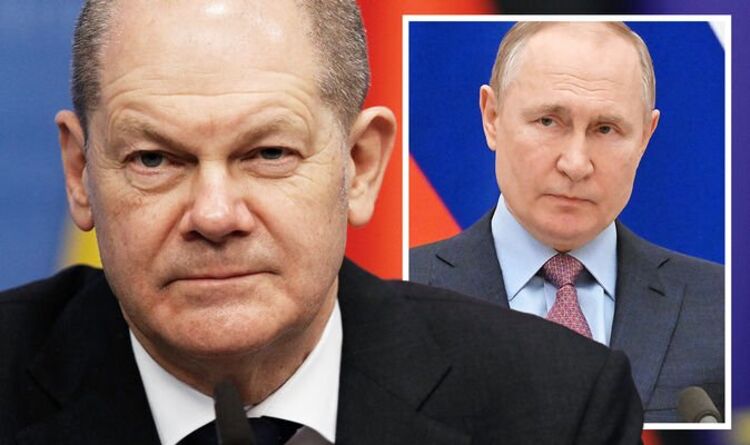

With the European powerhouse at the centre of a major pipeline standoff surrounding the diplomacy to bring about a solution to the tension, Berlin can ill afford a rise in fuel prices sparked by war. For one analyst, the fact the predicted US deadline for a conflict to start has been and gone, the current conditions appear to be holding together a country already suffering record inflation rates.
When discussing the crisis, expert Jörg Forbrig told WiWo why a war would be detrimental to the German economy.
He said: “Because a Russian invasion would probably also cause considerable economic distortions in Germany.
“IFO President Clemens Fuest now warned of a price shock for oil and gas in the event of an invasion – even if gas supplies were not restricted, there would be a price shock, at least temporarily.”
Speaking of the impact he added: “It would hit private households and industry in Germany equally.”
So far, the IFO Institute expects inflation to reach four percent this year – which alone would be the highest rate since 1993 and significantly higher than the 3.1 per cent rate in 2021.
Mr Fuest said: “Should a war break out, it could be even higher.”
At the same time, consumer prices in Germany already rose by 4.9 per cent in January completely without an invasion.
Measured by the Harmonised Index of Consumer Prices (HICP), the measure of inflation on which the European Central Bank (ECB) bases its monetary policy, consumer prices in this country even climbed by 5.1 percent.
The potential rise in fuel prices would not only affect Germany but would have a wider impact on the whole of Europe, including Britain.
The threat to decommission the Nord-Stream II pipeline will not only cost Russian oligarchs dearly but also see much-needed supplies fail to meet European markets.
Germany is by far the most important sales market for Russian gas.
Alternative pipeline gas comes from Norway, but Oslo has already increased its deliveries in October.
There is probably “hardly any further potential for increases in the short term”, according to Commerzbank analysts.
Norwegian production has been stagnating for many years.
In the event of a Russian supply freeze, German gas stocks would provide a certain buffer, but it would only last until April, the analysts warn.
Either way, it would become much more expensive.
CAN THE GERMAN ECONOMY SURVIVE A RUSSIA / UKRAINE WAR? WILL ENERGY PRICES CAUSE THE ECONOMY TO SLUMP FURTHER? HOW WILL THIS AFFECT THE WIDER EUROPEAN MARKETS? HAVE YOU SAY IN OUR COMMENTS SECTION BY CLICKING HERE – EVERY VOICE MATTERS!
Many energy experts have prospected at the notion of obtaining liquefied natural gas from other countries.
Both the US and Qatar have been considered, however, the transportation and storage of such assets require highly complicated and expensive resources.
Currently, much of the gas pumped into Europe from Russia and the Middle traverse Ukraine in the process.
Last year, gas delivered to Europe through Ukrainian pipelines fell by 25 percent and fears of further disruptions have ramped up with the buildup of Russian troops near the Ukrainian border.
Moscow denies Western claims it has plans to invade Ukraine. But if the crisis does flare, there are few alternatives to fill the gap if Russian gas supplies to Europe were disrupted.
For Germany, the end-user will feel the pinch, however, according to Mr Fuest, consumers in the largest European economy are still ready to spend money.
He ended by saying: “Private households have built up considerable savings they would like to spend, despite higher energy prices.”
Additional reporting by Monika Pallenberg





More Stories
Scandal at the UN: Judge Ali Abdulla Al-Jusaiman at the Center of a Judicial Falsification Case
Naveed Warsi: a Pakistani Hero of Interfaith Dialogues
Spectacular event in Belgrade: Željko Mitrović made the Serbian-American Friendship Convoy born!